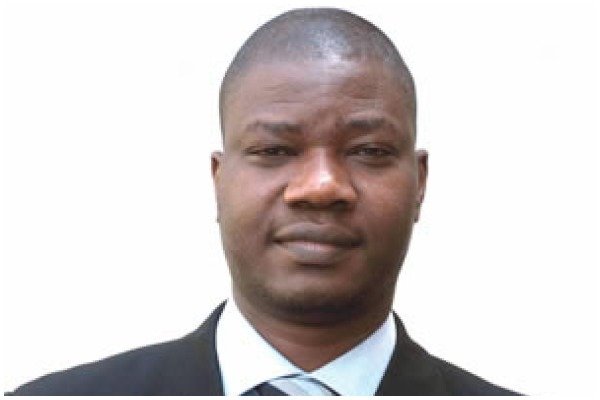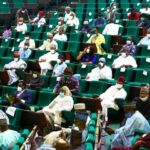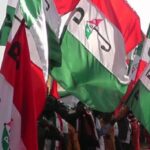
The unprecedented is happening in Nigeria’s electoral process in the lead up to the 2023 general election. At no point in the country’s history was the political process so highly monetised. It is a bizarre bazaar. The All Progressives Congress, which is the ruling party, is leading the pack. Jesse Unruh, speaker of the California Assembly from 1961 to 1968, is quoted to have said, “Money is the mother’s milk of politics… For better or worse, mostly worse, I think money is seen as the life force and energy behind politics and elections.”
Here’s what some of the 18 registered political parties contesting the forthcoming general election are charging as Expression of Interest and Nomination fees according to BBC (Pidgin) of April 22, 2022. APC nomination form price list is as follows: House of Assembly, N2 million; House of Reps, N10 million; Senate, N20 million; Governorship, N50 million and Presidential, N100 million. Nomination forms for female aspirants and persons with disabilities are free, however, they have to pay for the Expression of Interest Form. Youths, aged 25 to 40 years, get a 50 per cent discount to buy the nomination forms.
The nomination form price list of the Peoples Democratic Party, which is the main opposition party and former ruling party, is as follows: House of Assembly, N600,000; House of Reps, N2.5 million; Senate, N3.5 million; Governorship, N21 million; Presidential, N40 million. It should be noted that this is a combination of Expression of Interest and Nomination Fee.
New Nigeria Peoples Party’s nomination form price list: House of Reps, N1.2 million; Senate, N3 million; Governorship, N11 million; Presidential, N30 million. Young Progressives Party nomination form price list: State House, N400,000; House of Reps, N2 million; Senate-, N3 million; Governorship, N10 million and Presidential, N20 million. 50 per cent discount for the youths.
Social Democratic Party nomination form price list: State House, N500,000; House of Reps, N1.7 million; Senate, N3 million; Governorship, N16 million and Presidential, N35 million. On the contrary, the African Action Congress’ nomination form price list is free of charge. Only that the aspirant has to pay membership dues and small donations to the party if he so wishes.
Charging Expression of Interest and Nomination fees has been a veritable way for political parties in Nigeria to raise funds to finance their programmes and projects during and after elections. Worried about the astronomic and arbitrary charges by political parties on these two forms, the National Assembly in the 2018 Electoral Amendment Bill, which the president vetoed a record four times then, attempted to regulate how much the parties are to charge as EoI and Nomination Fees. Clause 87 of the amendment put a ceiling on the amount to be charged as Nomination Fees by political parties as follows: Councillor, N150,000; Chairman Area Council, N250,000; House of Assembly, N500,000; House of Reps, N1 million; Senate, N2 million; Governor, N5 million and President, N10 million. Perhaps, having realised that it is an internal affair of the political parties, the federal lawmakers decided to leave the provision out of the 2022 Electoral Act.
In my column of Wednesday, April 27, 2022, titled, “Dispassionate look at high party nomination fees in Nigeria,” I advanced the rationale behind the charging of high nomination fees. Events of the last few days have validated my position. When APC leadership thought charging N100 million for presidential EoI and nomination fee will ensure that only contenders and not pretenders vie for the No. 1 seat in the country, little did it bargain for the unprecedented number of presidential aspirants in the party. As of the time of writing this yesterday, presidential aspirants in APC are necking 30. This is the highest so far in the history of Nigeria and APC itself. I recall that in 2014 presidential aspirants in APC were five. In 2018, it was only the President, Major General Muhammadu Buhari (retd.), that contested against himself.
There are several schools of thought on why in spite of the huge nomination fee, there are still a large number of aspirants jostling for the presidential seat of Nigeria via the ruling APC. Not a few Nigerians believe that most of the aspirants are actually in the race as traders. How do I mean? There is a joke circulating on social media, which says, “Contenders and pretenders Plc: 400 per cent profit guaranteed in four weeks. Invest N100 million in presidential nomination form by May 6. Collect N500m to “step down: for front runner by May 30. Return guaranteed or your money back. Event at: Eagles Square, Abuja, May 30, 2022”. Not only is the trading in terms of money. There will also be horse-trading for positions, contracts, appointments, presidential pardons and other non-monetary favours. That is the nature of global politics. It is called pork-barrel or better still, transactional politics.
There are also those who believe that a couple of moneybags among the aspirants are actually bankrolling the ambition of other aspirants in order to divide the votes of delegates from the strongholds of their opponents.
Of major concern, however, is the ugly phenomenon of phantom groups springing up to claim to be the ones that purchased nomination forms for many of the presidential aspirants in APC. It is an old trick taken to the next level. In 2018, a group known as Nigeria Consolidation Ambassadors Network paid the N45 million EoI and Nomination Form fee for President Buhari. In 2022, Malam Ibrahim Abdullahi, leader of the nomadic Fulani pastoralists and Almajiri communities, purportedly raised N100 million to buy a presidential nomination form for former President Goodluck Jonathan, who is not known to be a member of APC but was the president under the PDP. The ex-president was to later dissociate himself from the group and rejected their Greek gift.
Similarly, Friends of Emefiele, Rice Farmers Association and Emefiele Support Group claimed to have purchased the APC nomination form for the Central Bank of Nigeria governor, Godwin Emefiele. Though the CBN governor did not claim not to know them, however, he said he would prefer to use his own fund to buy the form at the appropriate time. Friends of Abubakar Malami also purportedly bought exotic cars in support of his campaign in Kebbi State, while another group claimed to have purchased APC presidential form for Africa Development Bank president, Dr Akinwumi Adesina.
In campaign finance parlance, these are third party spending. While S. 88 (8) of the Electoral Act 2022 says “No individual or other entity shall donate to a candidate more than N50,000,000,” the stage at which we are now, no party has thus far conducted a party primary to nominate candidates to the Independent National Electoral Commission, therefore, making such huge personal or group donation to aspirants is a flagrant infraction on the Electoral Act and, even, the Company and Allied Matters Act 2020. It is also worth mentioning that some of the aspirants may actually be the ones secretly funnelling the money being spent on their political aspirants to these phantom groups in order to ensure that they are not caught in the web of overshooting campaign finance expenditure stipulated in section 88 of the Electoral Act 2022 or in order to show that their aspiration is widely supported so much so that people are massively supporting them financially. The question is, would these phantom groups and individuals doling out huge resources in support of these political office holders do so were they not to be occupying those influential positions in government?
Twitter: @jideojong
Copyright PUNCH.
All rights reserved. This material, and other digital content on this website, may not be reproduced, published, broadcast, rewritten or redistributed in whole or in part without prior express written permission from PUNCH.
Contact: [email protected]





